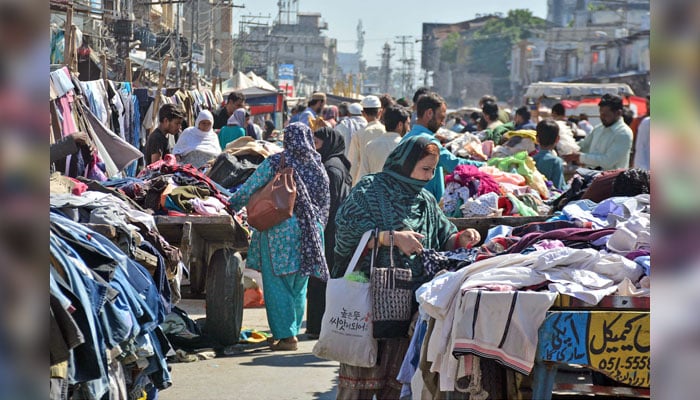Ignoring Pindi irks residents
My first memories of Rawalpindi as a young person are the long evening walks watching the sunset along the road. Now fifty years later, the city that has been my home its memories remain preserved even as the city has grown too much.
“I cannot forget the social structures in Rawalpindi’s historic core center on neighborhoods, each known as a Mohallah. A nearby bazaar serves each neighborhood. Each Mohallah has narrow streets, and the grouping of houses around short lanes and cul-de-sacs lends a sense of privacy and security to residents of each neighborhood,” says Musa Kazim.
“Rawalpindi is widely known as one of the livable cities. In recent years, my city has focused on road infrastructure projects for revitalizing the existing transport networks. With the city Corporation budget approval, long pending areas of concern need committed focus,” says Ali Akber.
“As a citizen, I feel these are several key areas, which stand ignored and need adequate attention. Vehicles take over footpaths meant for pedestrians. Not much has been done to develop footpaths, walkways, crossings, and pedestrian infrastructure,” says Faraj Mehdi.
“Just a year back Municipal Administration emphasized the right to walk and ordered the laying of new footpaths in each zone. However, nothing to this effect we witness on the ground. Crossing roads at many junctions is a nightmare as I experienced, with nonexistent or ill-planned crossings like bridges with no thought given to pedestrian safety,” says Sajid Ali.
“Removal of bins for implementing doorstep garbage collection, waste is seen piling up along some roads. This centralized waste collection system is not working well as envisaged and needs change to involve all stakeholders, including waste generators, to make it a success,” says Mazahir Hussain.
“Rapid urbanization has led to unchecked encroachments into connecting inlet and outlet drains disrupting the natural drainage system that leads to flooding in low-lying areas, even with a few hours of rain. When streets turn to river: Years of disregard for the environment and civic mismanagement become evident when extreme climate events occur,” says Naqash Abbas.
“Recently, a few drains have been spruced up with the creation of walking tracks and landscaping around it, but the exercise remains focused largely on beautification rather than improving the water flowing,” says Mohsin Haider.
“City buses, wagons, and Suzukis serve travelers. In recent years, the fleet size of city buses has gone down. The reduction in numbers has shrunk overall public transport usage. Perhaps, it is because of inflated petrol, gas, and diesel rates,” says Zair Hussain.
Shadman Raza says, “Transporters’ earnings have gone down therefore no new public transport is there. That shows the lackadaisical approach to public transport. With the economy opening up, a long-term vision for revival is necessary, for not only reducing dependence on private vehicles but also curtailing air pollution.”
-
 Winter Olympics 2026: When & Where To Watch The Iconic Ice Dance ?
Winter Olympics 2026: When & Where To Watch The Iconic Ice Dance ? -
 Melissa Joan Hart Reflects On Social Challenges As A Child Actor
Melissa Joan Hart Reflects On Social Challenges As A Child Actor -
 'Gossip Girl' Star Reveals Why She'll Never Return To Acting
'Gossip Girl' Star Reveals Why She'll Never Return To Acting -
 Chicago Child, 8, Dead After 'months Of Abuse, Starvation', Two Arrested
Chicago Child, 8, Dead After 'months Of Abuse, Starvation', Two Arrested -
 Travis Kelce's True Feelings About Taylor Swift's Pal Ryan Reynolds Revealed
Travis Kelce's True Feelings About Taylor Swift's Pal Ryan Reynolds Revealed -
 Michael Keaton Recalls Working With Catherine O'Hara In 'Beetlejuice'
Michael Keaton Recalls Working With Catherine O'Hara In 'Beetlejuice' -
 King Charles, Princess Anne, Prince Edward Still Shield Andrew From Police
King Charles, Princess Anne, Prince Edward Still Shield Andrew From Police -
 Anthropic Targets OpenAI Ads With New Claude Homepage Messaging
Anthropic Targets OpenAI Ads With New Claude Homepage Messaging -
 US Set To Block Chinese Software From Smart And Connected Cars
US Set To Block Chinese Software From Smart And Connected Cars -
 Carmen Electra Says THIS Taught Her Romance
Carmen Electra Says THIS Taught Her Romance -
 Leonardo DiCaprio's Co-star Reflects On His Viral Moment At Golden Globes
Leonardo DiCaprio's Co-star Reflects On His Viral Moment At Golden Globes -
 SpaceX Pivots From Mars Plans To Prioritize 2027 Moon Landing
SpaceX Pivots From Mars Plans To Prioritize 2027 Moon Landing -
 J. Cole Brings Back Old-school CD Sales For 'The Fall-Off' Release
J. Cole Brings Back Old-school CD Sales For 'The Fall-Off' Release -
 King Charles Still Cares About Meghan Markle
King Charles Still Cares About Meghan Markle -
 GTA 6 Built By Hand, Street By Street, Rockstar Confirms Ahead Of Launch
GTA 6 Built By Hand, Street By Street, Rockstar Confirms Ahead Of Launch -
 Funeral Home Owner Sentenced To 40 Years For Selling Corpses, Faking Ashes
Funeral Home Owner Sentenced To 40 Years For Selling Corpses, Faking Ashes




